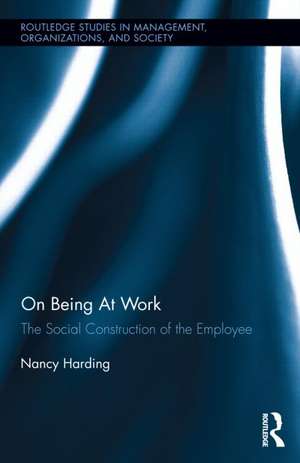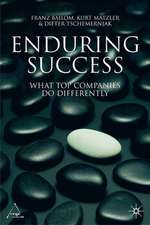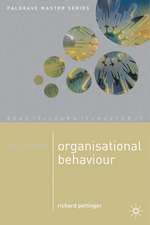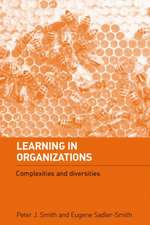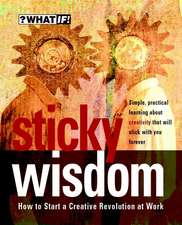On Being At Work: The Social Construction of the Employee: Routledge Studies in Management, Organizations and Society
Autor Nancy Hardingen Limba Engleză Hardback – 4 mar 2013
| Toate formatele și edițiile | Preț | Express |
|---|---|---|
| Paperback (1) | 258.91 lei 6-8 săpt. | |
| Taylor & Francis – 14 oct 2024 | 258.91 lei 6-8 săpt. | |
| Hardback (1) | 374.27 lei 6-8 săpt. | |
| Taylor & Francis – 4 mar 2013 | 374.27 lei 6-8 săpt. |
Din seria Routledge Studies in Management, Organizations and Society
-
 Preț: 311.41 lei
Preț: 311.41 lei -
 Preț: 379.69 lei
Preț: 379.69 lei -
 Preț: 392.62 lei
Preț: 392.62 lei -
 Preț: 309.04 lei
Preț: 309.04 lei -
 Preț: 311.59 lei
Preț: 311.59 lei -
 Preț: 325.53 lei
Preț: 325.53 lei -
 Preț: 324.68 lei
Preț: 324.68 lei -
 Preț: 311.26 lei
Preț: 311.26 lei -
 Preț: 309.82 lei
Preț: 309.82 lei -
 Preț: 310.37 lei
Preț: 310.37 lei -
 Preț: 308.97 lei
Preț: 308.97 lei -
 Preț: 287.60 lei
Preț: 287.60 lei -
 Preț: 288.72 lei
Preț: 288.72 lei - 9%
 Preț: 866.20 lei
Preț: 866.20 lei -
 Preț: 332.89 lei
Preț: 332.89 lei - 18%
 Preț: 1052.38 lei
Preț: 1052.38 lei -
 Preț: 486.42 lei
Preț: 486.42 lei - 18%
 Preț: 1114.98 lei
Preț: 1114.98 lei -
 Preț: 467.44 lei
Preț: 467.44 lei -
 Preț: 412.03 lei
Preț: 412.03 lei - 15%
 Preț: 427.16 lei
Preț: 427.16 lei - 18%
 Preț: 997.90 lei
Preț: 997.90 lei - 18%
 Preț: 1110.74 lei
Preț: 1110.74 lei - 18%
 Preț: 1110.11 lei
Preț: 1110.11 lei - 18%
 Preț: 730.36 lei
Preț: 730.36 lei -
 Preț: 484.69 lei
Preț: 484.69 lei - 18%
 Preț: 1068.88 lei
Preț: 1068.88 lei - 18%
 Preț: 841.18 lei
Preț: 841.18 lei - 18%
 Preț: 1060.52 lei
Preț: 1060.52 lei - 18%
 Preț: 1126.82 lei
Preț: 1126.82 lei - 30%
 Preț: 849.29 lei
Preț: 849.29 lei - 15%
 Preț: 565.01 lei
Preț: 565.01 lei - 18%
 Preț: 1170.84 lei
Preț: 1170.84 lei - 18%
 Preț: 1114.30 lei
Preț: 1114.30 lei - 18%
 Preț: 1061.93 lei
Preț: 1061.93 lei - 18%
 Preț: 1054.75 lei
Preț: 1054.75 lei - 18%
 Preț: 1057.40 lei
Preț: 1057.40 lei -
 Preț: 462.25 lei
Preț: 462.25 lei - 18%
 Preț: 1335.69 lei
Preț: 1335.69 lei - 25%
 Preț: 526.69 lei
Preț: 526.69 lei - 18%
 Preț: 1220.31 lei
Preț: 1220.31 lei - 26%
 Preț: 763.39 lei
Preț: 763.39 lei -
 Preț: 485.46 lei
Preț: 485.46 lei
Preț: 374.27 lei
Nou
Puncte Express: 561
Preț estimativ în valută:
71.62€ • 75.31$ • 59.18£
71.62€ • 75.31$ • 59.18£
Carte tipărită la comandă
Livrare economică 17 aprilie-01 mai
Preluare comenzi: 021 569.72.76
Specificații
ISBN-13: 9780415579711
ISBN-10: 0415579716
Pagini: 216
Ilustrații: 1 table and 1 halftone
Dimensiuni: 152 x 229 x 18 mm
Greutate: 0.56 kg
Ediția:New.
Editura: Taylor & Francis
Colecția Routledge
Seria Routledge Studies in Management, Organizations and Society
Locul publicării:Oxford, United Kingdom
ISBN-10: 0415579716
Pagini: 216
Ilustrații: 1 table and 1 halftone
Dimensiuni: 152 x 229 x 18 mm
Greutate: 0.56 kg
Ediția:New.
Editura: Taylor & Francis
Colecția Routledge
Seria Routledge Studies in Management, Organizations and Society
Locul publicării:Oxford, United Kingdom
Public țintă
Academic and PostgraduateCuprins
1. A Tale of Two Sisters 2. The Master’s Tale 3. The Bondsman’s Tale 4. Becoming Human 5. Becoming and Not Becoming Gendered 6. The Murder of the Me’s That Might Have Been
Notă biografică
Nancy Harding is Professor of Organization Theory at Bradford University School of Management. She is currently writing a series of books on the social construction of, respectively, the manager (Routledge, 2003), the employee (Routledge, 2013), and the organization (forthcoming).
Recenzii
This remarkable book is an exemplar of how to combine theoretical sophistication, empirical engagement and readability in organization studies.
[…] theoretical arguments are woven with extreme skill into a narrative that tells the stories of a variety of people’s working lives (and not just through dessicated accounts of ‘identity’ but, to use a much abused term, by providing a rich picture of their feelings, bodies, memories and hopes). These people include Harding herself and her sister Julie, a full-time carer for their father; Frank, a manager; Shakeel, a manual worker; Alex, an archaeologist; Kara and Saul, lecturers. It is this interweaving which is the truly remarkable feature of the book because it enables several things to happen simultaneously: to make sense of and illuminate easily recognizable experiences, to both elucidate and interrogate theory (including the theories in use of the subjects), and to hold the reader engaged.
[…] in a subject area much in need of renewal and experimentation this book stands out as an important landmark. It is conceived of as the second in a trilogy – the first being on management (Harding, 2003), the third to be on organization. On the evidence of this volume, and indeed its predecessor, the trilogy when completed will be one of the most exciting and stimulating contributions to contemporary organization studies.
Christopher Grey, Organization Studies, Volume 35, Issue 6
[…] theoretical arguments are woven with extreme skill into a narrative that tells the stories of a variety of people’s working lives (and not just through dessicated accounts of ‘identity’ but, to use a much abused term, by providing a rich picture of their feelings, bodies, memories and hopes). These people include Harding herself and her sister Julie, a full-time carer for their father; Frank, a manager; Shakeel, a manual worker; Alex, an archaeologist; Kara and Saul, lecturers. It is this interweaving which is the truly remarkable feature of the book because it enables several things to happen simultaneously: to make sense of and illuminate easily recognizable experiences, to both elucidate and interrogate theory (including the theories in use of the subjects), and to hold the reader engaged.
[…] in a subject area much in need of renewal and experimentation this book stands out as an important landmark. It is conceived of as the second in a trilogy – the first being on management (Harding, 2003), the third to be on organization. On the evidence of this volume, and indeed its predecessor, the trilogy when completed will be one of the most exciting and stimulating contributions to contemporary organization studies.
Christopher Grey, Organization Studies, Volume 35, Issue 6
Descriere
Inspired by the work of the philosopher Judith Butler, influenced by Marx’s theory of alienation and intrigued by theories of death, this book develops an anti-methodological approach to studying working lives. Distinctions are drawn between labour (the tasks we do in our jobs) and work (self-making activities that are carried out at the workplace): between the less than human, zombie-like laborer and the working human self. Nancy Harding argues that the experience of being at work is one in which the insistence on practising one’s humanity always provides a counter-point to organisational demands.
